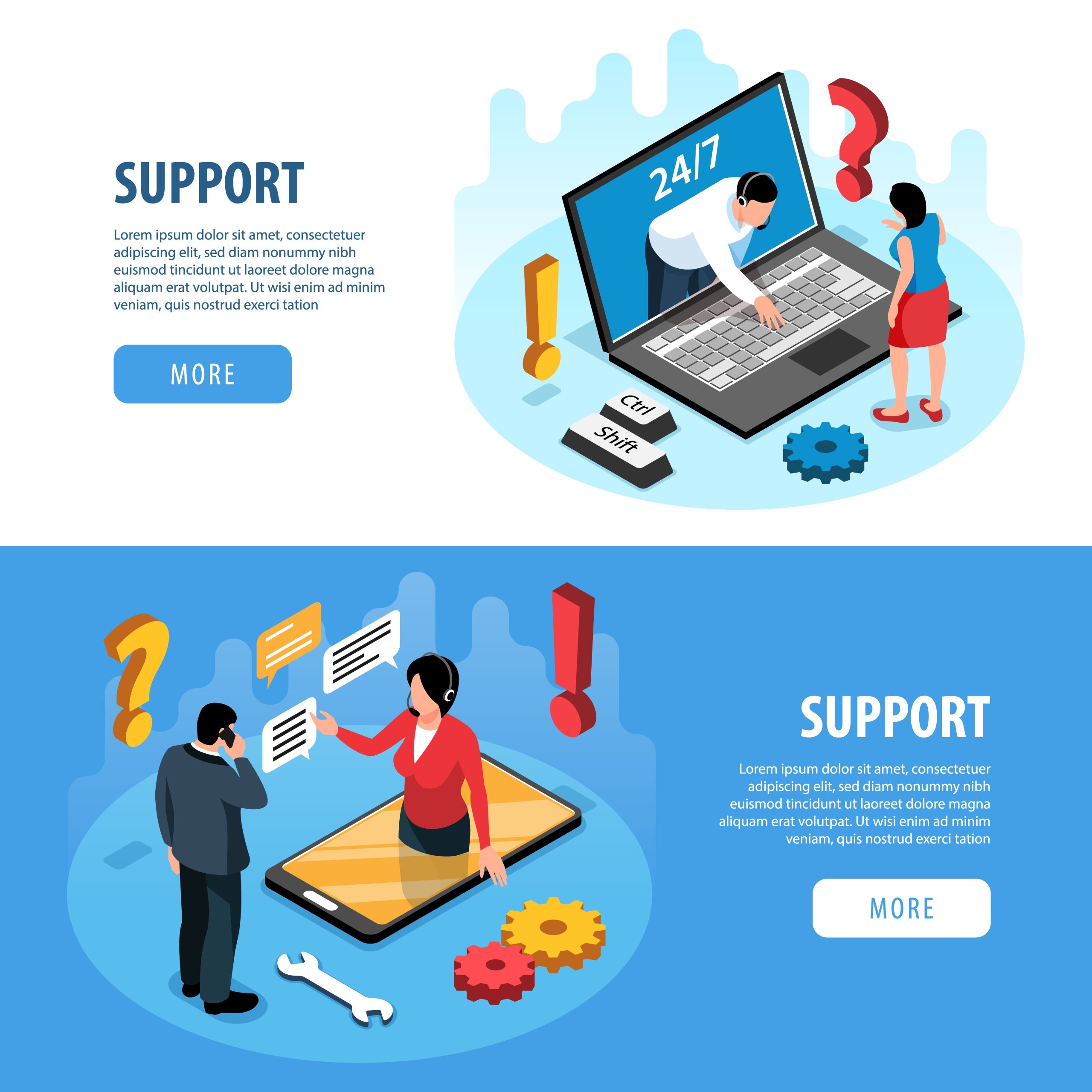Customer service is an important part of any business. The majority of companies employ a eCommerce Customer Service team to handle this.
However, if the team does not all communicate in the same way or is not on board with your continuous objective for the firm, it may not be easy to run anything other than a smooth ship.
This following guide will lead you through the various options available to you while looking for the best match for your company to help you navigate through the numerous customer service software for eCommerce possibilities and see how they compare to one another.
What is customer service software?
Customer support software allows business communication through email, chat, messaging, and self-service channels to be managed and tracked.
These tools help companies fulfill their commitments to provide outstanding customer service.
Specific packages place a strong emphasis on growing sales and managing leads.
Others include help desk features that let businesses monitor system issues and flaws and ensure that client complaints are appropriately handled.
Help desk software
Every person who has created a customer ticket to ask for support with a product has used help desk software. Users can seek help with product issues, license management, and other issues using these apps.
On the back end, they aid in team organization and make sure that problems are immediately fixed by the individual best suited to offer assistance.
These projects might be helpful for businesses that produce software or other products that require a lot of customer assistance.
A help desk program is frequently used by businesses in addition to CRM software to help with problem management, sales, and general customer assistance.
It eliminates the need for in-person complaints by automatically submitting tickets through the help desk software, approving them, and informing the personnel that helps the consumer.
By choosing the right kind of helpdesk software, both customers and organizations stand to gain significantly.
Retail ticketing software can manage customer care and IT requirements from configuration to operations since it may be configured to perform any task.
Customer relationship management
CRM software compiles customer and prospect information into a database to assist organizations in managing marketing campaigns, monitoring customer service issues, and identifying qualified prospects.
Any employee within the organization has access to a customer’s or prospect’s file to learn more about them, their relationship with the business, the last time they were contacted, any difficulties they may have raised, and other important information.
CRM packages may be an option for businesses looking to boost sales and centralize all client contacts. Many organizations won’t need any other customer service software and they only need a reliable CRM.
Knowledge bases
A company’s staff can provide tips, tricks, and information in a searchable format for customers to utilize when using its products, which frequently have a steep learning curve for users.
A self-service knowledge base’s accessibility can free up staff members time to interact with customers who need or prefer one-on-one care.
Many customers prefer to solve their problems, and they value well-indexed and well-organized material.
This type of Knowledge base ecommerce customer support software is an excellent fit for some businesses. It is often offered in addition to contact channels like live chat or a help desk for customers who need help finding the solutions to their inquiries.
Chat tools and messaging
If a business wants to offer support but does not require a fully equipped help desk, it may consider cloud-based customer service software solutions that add a live chat box or messaging system to its website.
These features put staff at the disposal of customers and potential customers, exhibiting a business’s consideration for their needs.
While some systems immediately link users to human support, others use bots to respond to frequently requested questions.
Chat allows for real-time contact, but messaging allows for conversations to happen whenever it is most convenient for everyone involved.
Cloud-based customer support software
Cloud-based customer support software is made available as a service. It is similar to a web-based customer help program in that it is hosted on different servers.
The crucial contrast between the two is that cloud-based help desks, as opposed to web-based help desks, can be accessed with or without a web browser.
Local caching of data from businesses enables the app to run without an internet connection and sync when it does.
Shared inbox software
A shared inbox is a collaborative space where team members can read duplicate emails.
Teams may work together to address requests, grievances, and inquiries by integrating numerous accounts into one inbox.
Team members can speak with one another within the app to ensure that every inquiry benefits from their collective experience.
Businesses can use these apps to organize workflows and tasks around communications.
These apps are helpful for businesses that want to address issues collectively but don’t need extensive service desk software.
Summing it up
Finally, the eCommerce helpdesk software keeps your staff organized and increases their effectiveness.
The best software makes it simple to handle customer and staff communication, allocate tickets to agents, track time spent on each ticket, and much more.
Author bio:
Mr. Maulik Shah is the founder of DeskXpand, A full-fledged ticket management system that comes with the right tools, like an online ticketing system, to provide a seamless and cost-efficient customer experience. Maulik is a tech enthusiast and writes about the various aspects of helpdesk management software.
